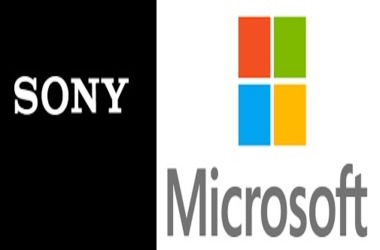
Sony’s Blockchain Initiative: A Seamless Asset Transfer Experience:
Sony, known for its PlayStation empire, has taken significant steps by filing patents that enable the seamless transfer of digital assets between PlayStation titles using Blockchain technology. This innovative approach extends beyond individual games, allowing players to possess assets beyond the constraints of specific gaming realms. With the tokenization of in-game assets, Sony envisions secondary market trading among players, spanning from PS4 to PS5 and beyond.
Microsoft’s Strategic Moves: Crypto Wallets and Platform Expansion:
On the other end of this gaming revolution, leaked documents suggest Microsoft’s commitment to integrating crypto wallets into Xbox, facilitating secure asset trading across various platforms. This aligns with Microsoft’s broader goals following acquisitions of gaming giants like Activision Blizzard and Savage Game Studios, showcasing a dedication to expanding its gaming influence while embracing Blockchain’s transformative potential.
The Crypto Wallet Speculation: A Collaborative Effort?
Although details remain undisclosed, rumors circulate about Microsoft’s intent to incorporate a “crypto wallet” feature, sparking speculation about in-game asset transfers similar to Sony’s initiative. The question arises: Will this wallet be an indigenous Microsoft creation or a collaborative effort with established third-party providers like Coinbase or MetaMask?
Blockchain in Gaming: Shaping the Future of Consoles:
The advent of Blockchain in gaming occurs at a pivotal time for the industry, ripe for innovation and expansion. Despite past setbacks for some Blockchain games, the allure persists. Titles like Axie Infinity and others utilizing crypto payments gain traction, reflecting a growing interest in merging cryptocurrency with mainstream gaming.
Market Opportunities and Projections:
This profound shift in gaming dynamics presents a significant market opportunity. Analysts project a staggering growth exceeding 10% in the Blockchain gaming sector by 2025, propelling the industry towards an estimated value surpassing US$206.4 billion. Catalysts include the rise of play-to-earn games, augmented demand for immersive gaming experiences, and the growing acceptance of Blockchain among developers and publishers.
Challenges to Traditional Revenue Models:
Traditional gaming revenue models, reliant on sales, in-game purchases, and subscriptions, face a formidable challenge from Blockchain’s unique proposition: granting genuine ownership of in-game assets. This innovation creates novel revenue streams for players and creators while establishing transparent and secure in-game economies.
Sony and Microsoft: Technological Trailblazers Shaping the Industry’s Future:
As industry trailblazers renowned for their technological prowess, Sony and Microsoft have the potential to replicate past successes, reminiscent of Sony’s triumph in popularizing Blu-ray. The integration of Blockchain technology into gaming consoles could serve as a catalyst, reshaping game design, player engagement, and monetization strategies.
The Industry’s Focus on Sony and Microsoft’s Foray:
In the midst of growing interest in Blockchain and the metaverse within gaming circles, enthusiasts and industry experts eagerly anticipate Sony and Microsoft’s impending foray into this transformative landscape. While existing alternatives cater to niche markets, the anticipated consoles aim to fill the void, with observers eagerly awaiting how Sony and Microsoft will elevate the gaming experience through their cutting-edge consoles.
